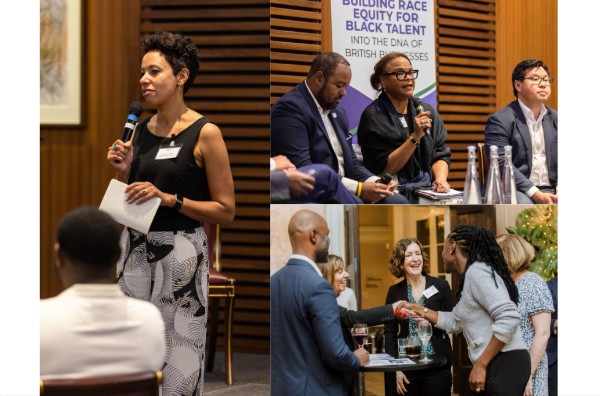
Renewing efforts, not cancelling programmes
Trends in the US: A Bloomberg News Analysis
Developments in the United States are seeing retreats from corporate diversity, equity, and inclusion (DEI) initiatives. However, data recently published by Bloomberg, demonstrates why efforts must continue to avoid further stalling of progress for black employees.
According to a Bloomberg News analysis of the latest race and gender data from 84 of the top US companies*, the share of black workers is on the decline (down by 0.3% from 2021). The analysis suggests that the 84 companies analysed started losing a disproportionate number of black workers in 2022 and ‘it was only a couple thousand at first, but those losses gathered momentum in 2023, growing almost tenfold’. Combining this research, which identifies that of the reduction in overall workforce numbers 26% were black with McKinsey & Company analysis of the US workforce, which found that 12% of US private-sector workers are black, shows the scale of the disparity.
Further, Bloomberg’s review also provides updated context on other representation, continuing to find that black and Hispanic employees are overrepresented in entry-level roles. The McKinsey & Company research made similar findings, noting the additional precariousness of those roles.
Turning to the UK, our research has shown that the same gaps are far from solved and continue to widen. As businesses recalibrate structures and priorities, a frequent point raised with us are the concerns that the dynamics we see in the US disproportionately affect minority groups including the black talent, destroying the underpinnings of future diverse pipelines that are necessary to see future diversity in leadership teams.
Whilst it is important for organisations to constantly assess the effectiveness of their DEI efforts to iterate and improve outcomes, a full retreat from DEI efforts not only affects marginalised employees but also has broader economic implications. Diverse workforces have been shown to drive innovation and profitability reduce groupthink and enhance innovation, better decision-making, and improved financial performance**. In sectors where decision-making and risk assessment are pivotal, diverse perspectives can mitigate risks and uncover opportunities that homogenous teams may overlook.
Furthermore, clients and consumers are increasingly favoring businesses that demonstrate a commitment to DEI principles. A workforce that reflects the diversity of the client base can better understand and meet client needs, fostering stronger relationships and driving business growth. Scaling back on diversity initiatives could hinder economic growth and competitiveness. While achieving race equity is a challenging journey, not a one-time initiative, regular assessments and a willingness to adapt strategies in response to changing dynamics is crucial to maintaining momentum and achieve long-term success.
You can read more on this subject, including our article ‘The Wealth of Nations and Black Talent’ on our Knowledge Centre.
Visit blacktalentcharter.com to find out how your business can support black talent.
*This analysis looked at the S&P 100 companies that made their information available for each year, from 2020 to 2023
**FCA
Written by





